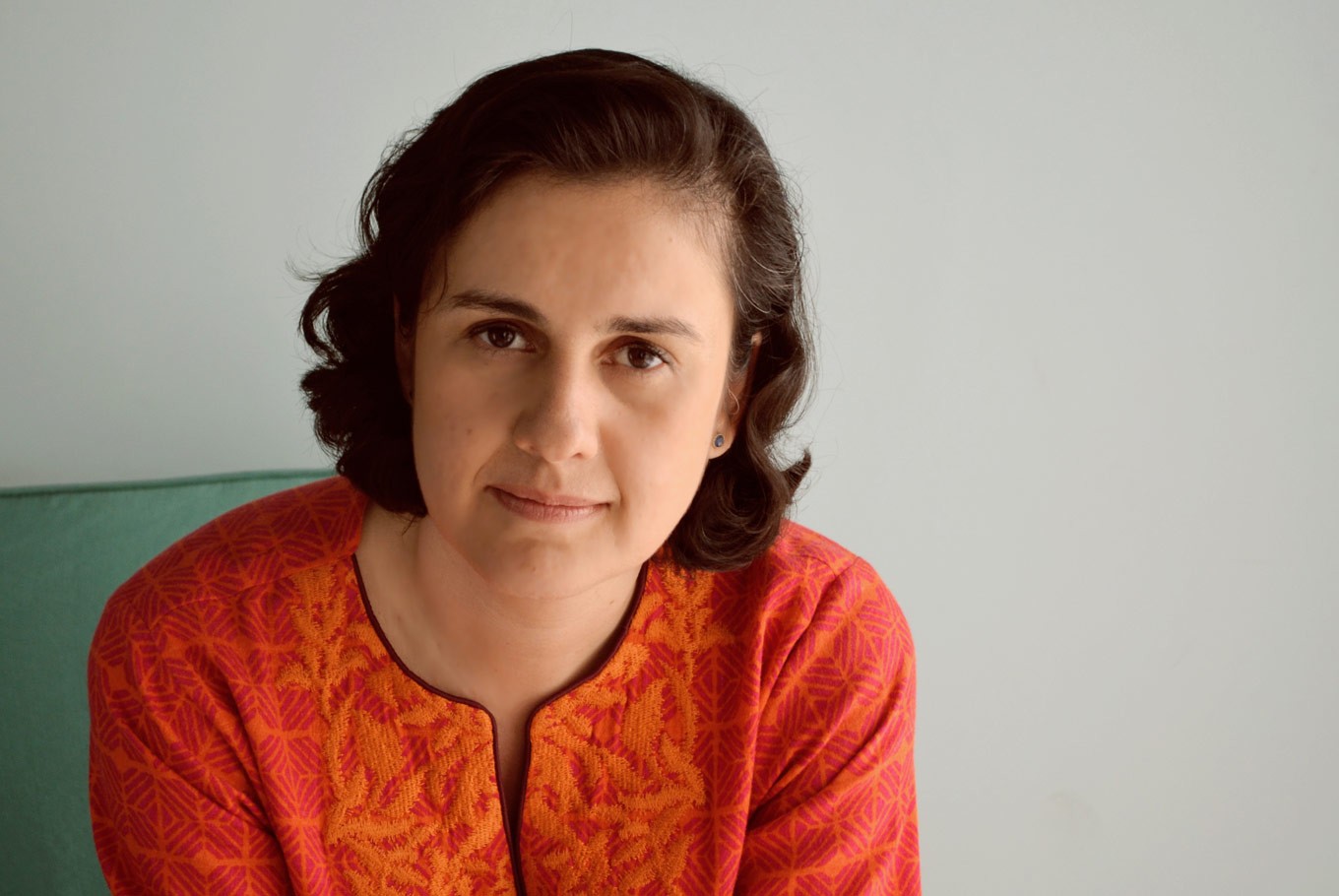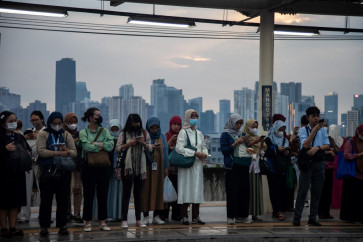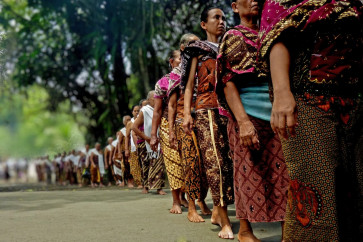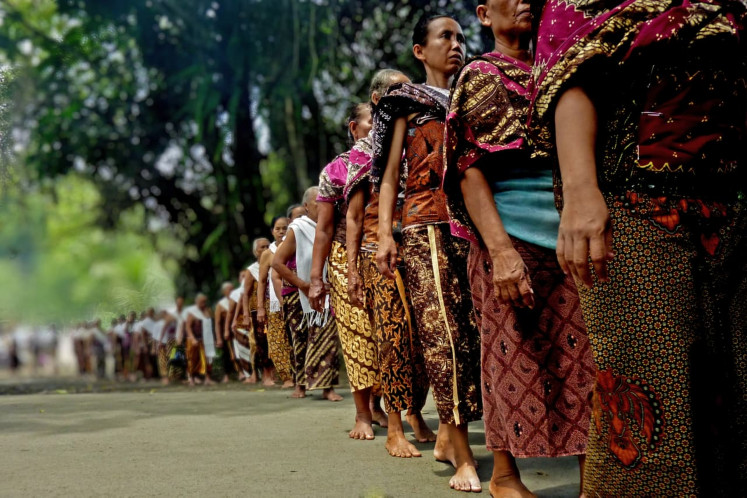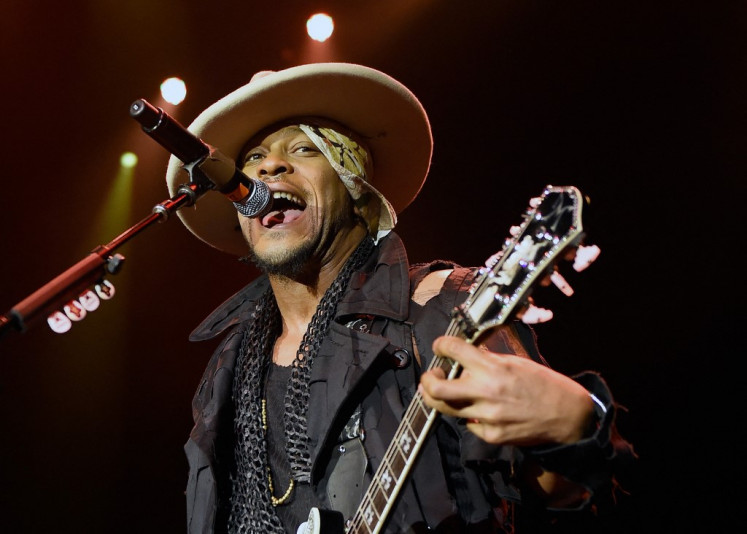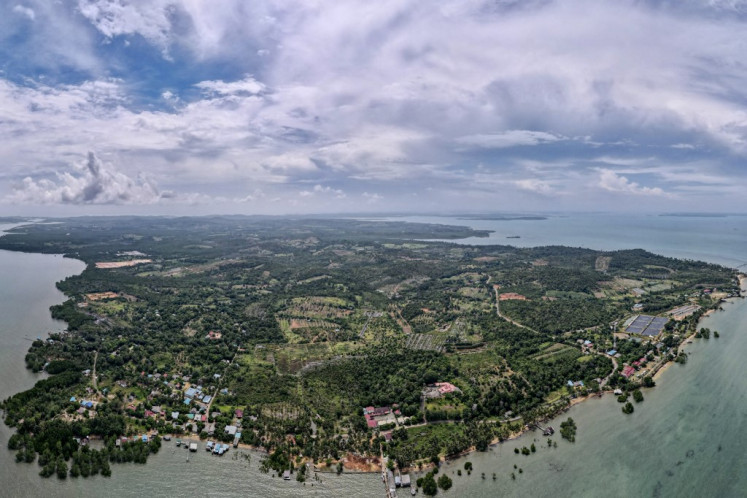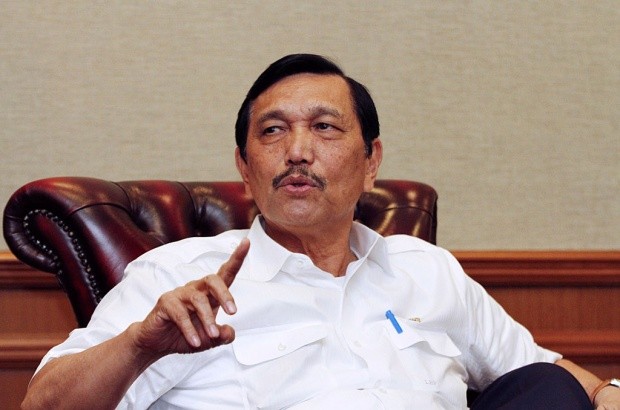Popular Reads
Top Results
Can't find what you're looking for?
View all search resultsPopular Reads
Top Results
Can't find what you're looking for?
View all search resultsInterview: Kamila Shamsie talks about 'Home Fire', minorities and terrorism
A modern twist of Greek story Antigone, Home Fire in its heart is a family tragedy. In fewer than 300 pages, Shamsie provokes readers to re-examine views on terrorism, returning jihadist fighters, minorities and identity.
Change text size
Gift Premium Articles
to Anyone
L
onglisted for the Man Booker Prize 2017, Kamila Shamsie's Home Fire has reaped praise for its aptitude in tackling difficult yet relevant contemporary issues.
A modern twist on Greek story Antigone, Home Fire in its heart is a family tragedy. In fewer than 300 pages, Shamsie fleshes out how British people of Pakistani descent struggle to be accepted in society and provokes readers to re-examine views on terrorism, returning jihadist fighters, minorities and identity.
The Jakarta Post talks to Shamsie about the book, with the paperback version hitting bookstores on March 22 -- making it accessible to a wider audience.
What drove you to write Home Fire in the first place? The topic is very sensitive, how did you handle it?
The idea started because a theater director asked me to think about re-writing the Ancient Greek play Antigone in a contemporary British context. When I read the play -- which has at its center two sisters who respond differently to the legal repercussions of their brother’s act of treason -- I knew immediately that I wanted to connect it to a story that was very much in the news at the time, that of young British Muslims and their relationship with the British state. I didn’t end up writing it as a play; I’m a novelist, so that’s the form I wanted to use to tell the story.
When you write a novel you don’t think about subjects as being sensitive or not -- you just think of them as being interesting and complex, and you wonder how to tell them in a story that’s about a group of characters.
Home Fire delves into the experience of minorities. You grew up in Karachi before living in England and becoming a British citizen. What was it like being a minority when you were not one before?
Well, I was at university in America so I’ve known from the age of 18 what it feels like to move between a place where you’re part of the majority to someplace where you aren’t. In upstate New York I stood out much more as a Pakistani than I do in London. But of course, given the context of the world we live in, the issue isn’t just being a minority; it’s specifically about being Muslim. Of course it can get exhausting or upsetting to be part of a minority that’s so demonized in the country where you live -- but it does make you look quite closely at the society you’re in, and how different groups interact. And if you’re a novelist, you channel that into your writing in ways that feel rewarding.
One controversial passage from the book is how minorities should detach themselves from all the attributes that make them minorities and set them apart from the majority in order to be fully accepted in society. Have you ever considered this personally? Do you think it's possible for a minority to be accepted without having to resort to that?
You have to have a very low opinion of yourself and the place you came from and the place you’ve moved to in order to really believe that you have to let go of every part of that place in order to be welcome in this place. Also, it’s impossible. You end up being a fraud, uncomfortable in your skin, pretending to be someone you aren’t.
That doesn’t mean you should be resistant to being influenced by any new context in which you find yourself -- but that adaptation has to come from something more genuine than the wish to "pass" as belonging to some group other than the one you grew up in.
When you ask if it’s possible for a minority to be accepted without having to resort to jettisoning part of themselves, my response is to want to know who you think needs to do the accepting. I live in London; it’s a very mixed, heterogeneous place. Some people here may not accept minorities. Many people here are one kind of a minority or another. And our mayor -- democratically elected -- is a Muslim. There will always be people who don’t accept him, but I’d rather focus on those who do.
Read also: God can't survive science, 'Da Vinci Code' author says
Your novel offers a very humane view of terrorists, their families and returning fighters. While national security agencies will understandably take a very cautious stance against them, how do you think we should act as members of society?
By not saying "they" as if a terrorist and their families belong to the same group. I would hope anyone who reads my novel will see that what I’m saying there is that you have to look at every individual case and decide how to respond.
To The Guardian, you talked about writing fiction, saying: "But if you write fiction, you are behind someone's eyes looking out, and that's the difference." How do you hone this ability of empathy?
I suppose for me it must have started with reading fiction. I grew up seeing the world through the eyes of people very different to me. But really, empathy is a common human characteristic -- only psychopaths completely lack it. But some people are selective about their empathy; believing that they should only use it for a certain group of people. If you’re a novelist, it’s just part of your professional life to empathize very widely in order to find human stories everywhere. But anyone can do it -- you just have to want to try.
The character Karamat Lone in Home Fire is a minority representation in politics. Do you feel you have some sort of responsibility in terms of representation in your writing?
No. I write the stories and characters that interest me. But of course I know that to write well you can’t write stereotypes, or be lazy about the characters you create.
You have the privilege to be born in a family with a long literary tradition. How do you think this has affected you?
I don’t know if I would have been a writer if I hadn’t grown up in a house full of books and reading. So it’s affected me at the very deepest level.
Indonesia and Pakistan are the first and second largest Muslim country in the world. Both are struggling to function as democracies amid rising conservatism, majority-minority dynamics, and terrorism as well, resulting in a bad international reputation. Do you have any comment on this?
My comment is that the same could be said these days for many countries in the world -- India, America, Britain, Turkey to name just a few. So I don’t think being the first and second largest Muslim country in the world has very much to do with it.
Pakistani writers have been vocal in representing their country in the literature world, at least compared to their Indonesian counterparts. Do you have any advice for Indonesian writers aspiring for an international breakthrough?
All the Pakistani writers I know simply started off by sitting down at their desks, wanting to write, and wanting to write as well as they could. Twenty years ago, when I was first published, there was no way of knowing that in a few years people would be talking about Pakistani writing as something new and exciting in the world of English language publishing. And there isn’t really any point thinking about those kinds of things. You just write the best book you can, and then send it out to agents and publishers and sit back and hope. (kes)

